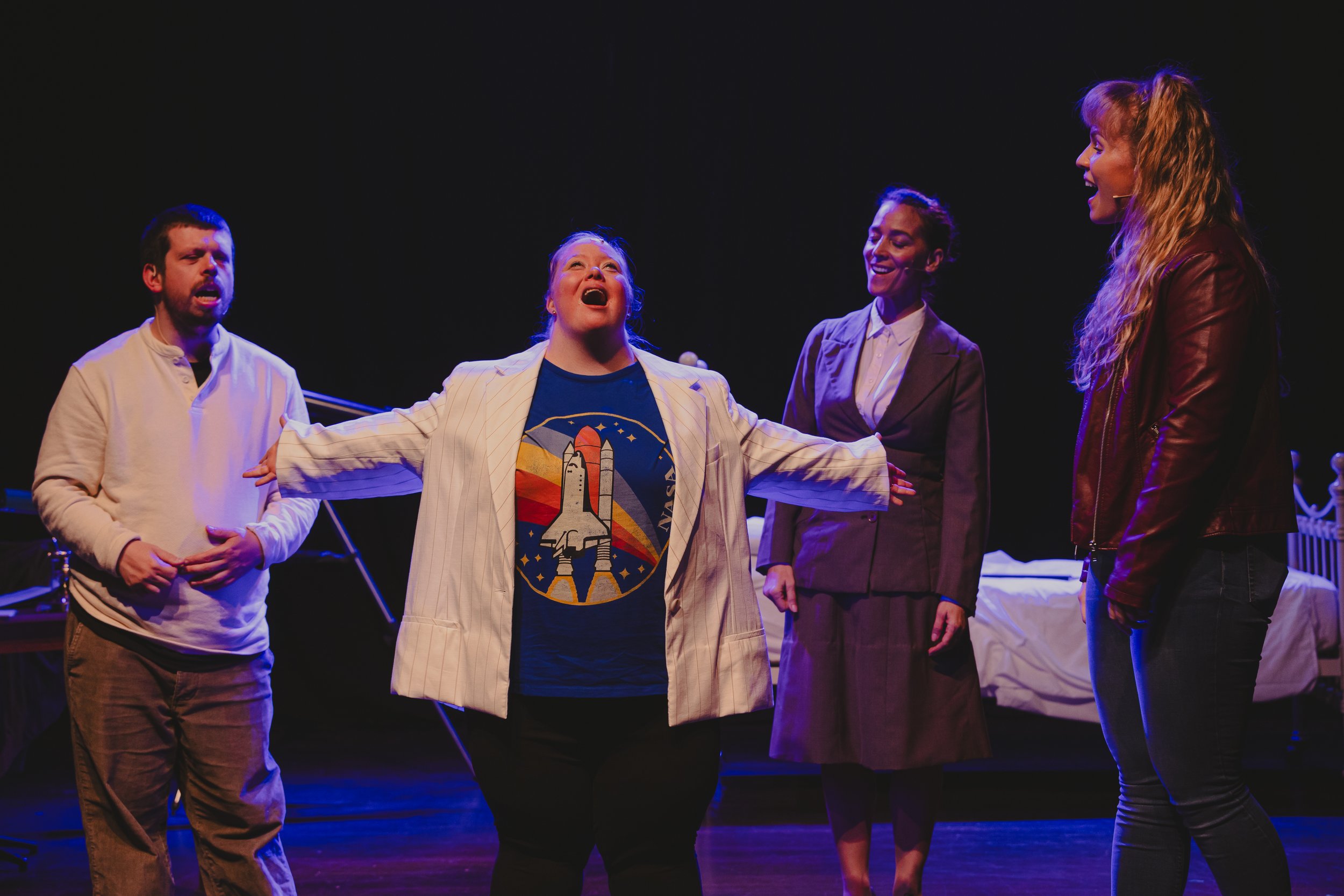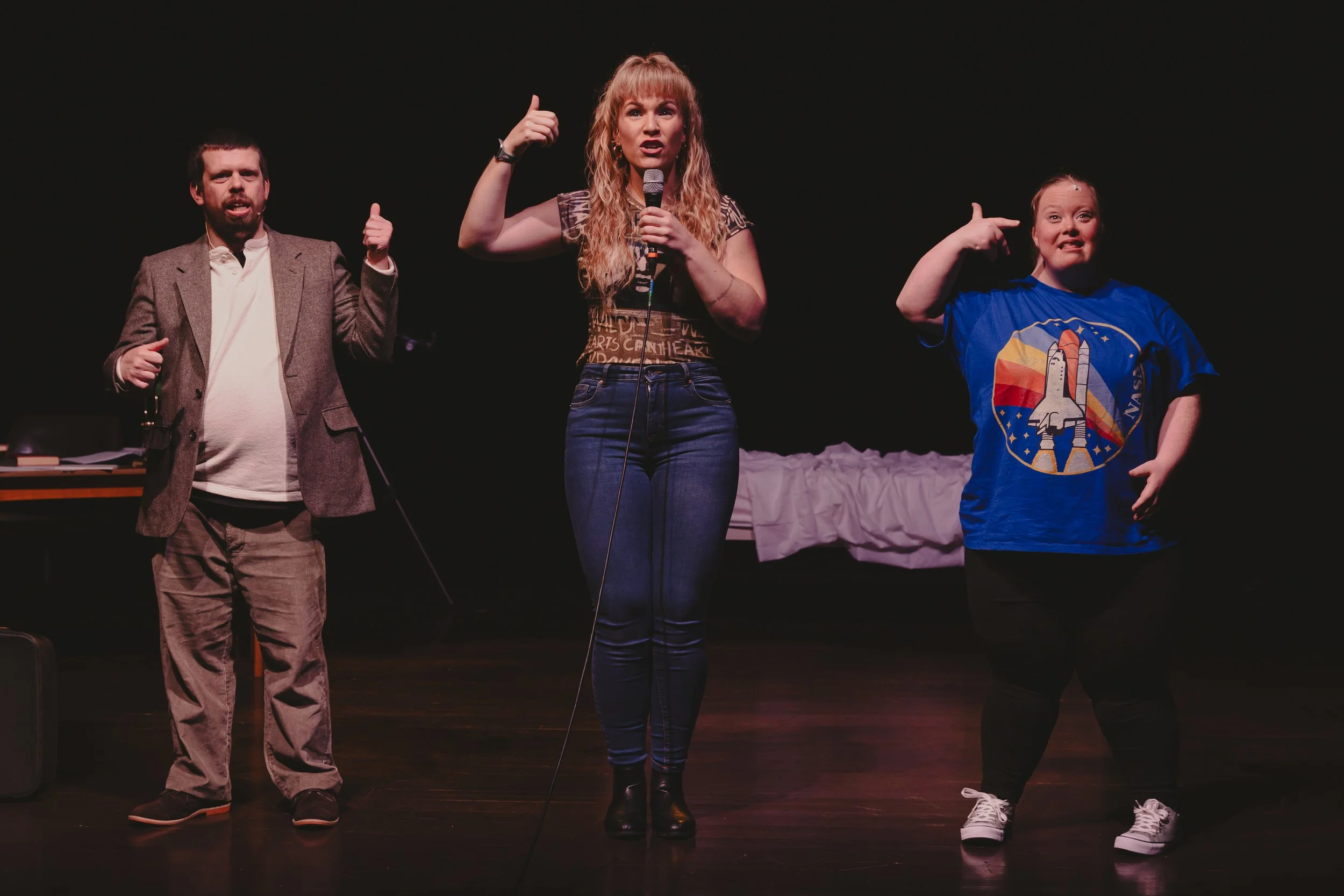Documental Theatre: MARY AND THE MATRONS
Produced by Documental Theatre, “Mary and the Matrons” is a new musical whose first R&D sharing had multiple standing ovations this autumn at Exeter Northcott’s Barnfield Theatre. Inspired by the ground-breaking reports of Dr Mary Sheridan, a pioneer in the study of child development, the story revolves around Millie More, an ambitious teenager who aspires to become an astronaut.
Image credit: Emily Appleton (South West Theatre Photography)
We spoke with Lucy Bell, the mastermind behind the book and lyrics, to get the full scoop on this unique show. The genesis of “Mary and the Matrons” came from Lucy’s personal experience with her daughter, who has learning disabilities. Lucy describes, “It started from a very personal viewpoint that was then layered by the historical.”
Image credit: Craig Fuller
Lucy delved into research on the provision for children with disabilities in the 50s and 60s and came across Dr Sheridan’s reports, which strongly influenced her creative process– in Documental Theatre, led by Lucy and producer Naomi Turner, accessibility and inclusivity is the goal. As Lucy says, “I think [Dr. Sheridan] would have approved of a nurturing, integrated [rehearsal] room where everyone could learn from each other’s skills.”
Image credit: Emily Appleton (South West Theatre Photography)
According to Lucy, disabled actors frequently face systemic challenges in the theatre industry, from logistical barriers to internalised ableism. “The biggest barrier is financial,” she explains, “if you rely on benefits, your housing and income can be totally jeopardised by a short-term freelance job… Inclusive theatre companies are finding smart ways to pay people so that they earn fair pay but don’t go over the income cap.”
Image credit: Craig Fuller
Regarding the systemic change needed in the theatre industry for creatives with disabilities, Lucy’s answer is simple: “For the industry to move forward, the main thing is to keep asking questions and keep trying.”
Image credit: Craig Fuller
For “Mary and the Matrons”, accessibility extends beyond the rehearsal space. The performance incorporates Makaton signing for theatregoers with communication difficulties and learning disabilities: “We considered that not everyone in the audience is verbal or a reader, [so we integrated] Makaton signs and other supportive materials. [And] of course, music communicates across all sorts of barriers.”
Image credit: Emily Appleton (South West Theatre Photography)
Lucy also highlights another significant challenge: the scarcity mindset that can occur when facing competition for opportunities. “If you are already struggling with self-esteem and the logistics of day-to-day life, that scarcity narrative makes you think, what chance have I got?” Considering the casting process for “Mary and the Matrons”, Lucy muses “[We were] left wondering why the actors we met weren’t constantly on our stages and screens.”
Image credit: Emily Appleton (South West Theatre Photography)
Ultimately, in Documental Theatre inclusivity goes beyond a mere checklist—it's a vocation and a driving force. They encourage all of us to take risks and think outside of the box. You can learn more about them and “Mary and the Matrons” here.







